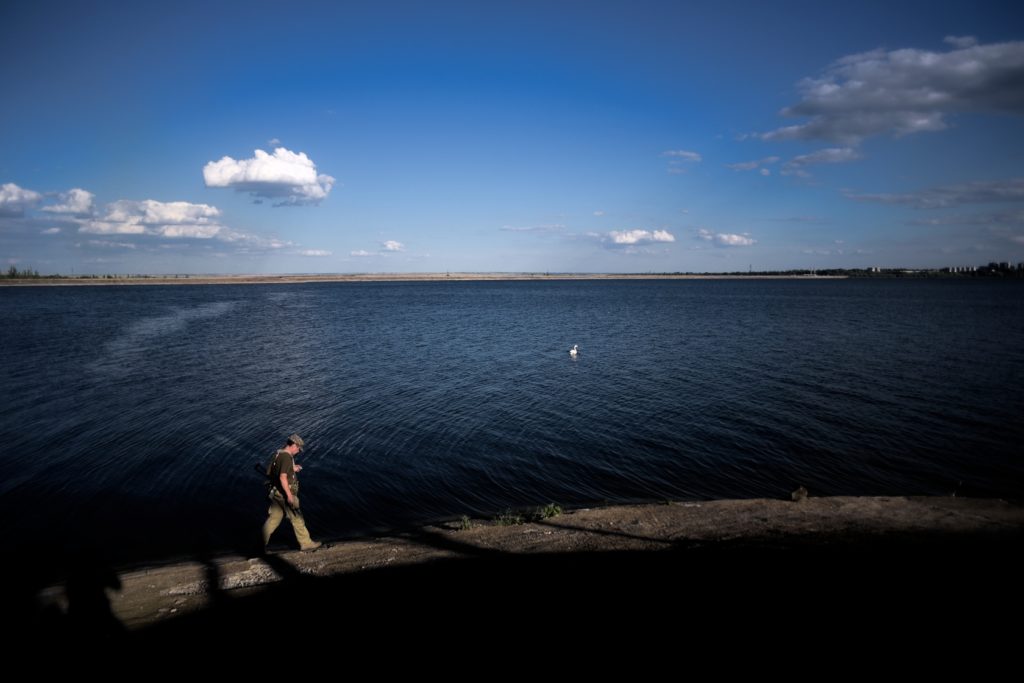AFTERILOVAISK. “Zhora”
Photo: Markiian Lyseiko
Oleh Zharikov, codename “Zhora”, sniper, “Donbass” battalion, Zaporizhia
I went to the war from the very first days. I went to the military commissariat a couple of times in April, but they sent everyone away there, so I started looking for opportunities on the Internet. I was looking for the contact information of the “Donbass” battalion. I called and was told, “Gather your belongings and come.” We all knew about war only what we saw in the movies. But in fact, everything is different, of course.
Before the war, I had been engaged in construction and repairs.
My relatives understood that I would go to the war. My wife saw that I was gathering things, talking on the phone, calling somebody. I said, “Either support me or don’t interfere,” and I’ve been supported for four years.
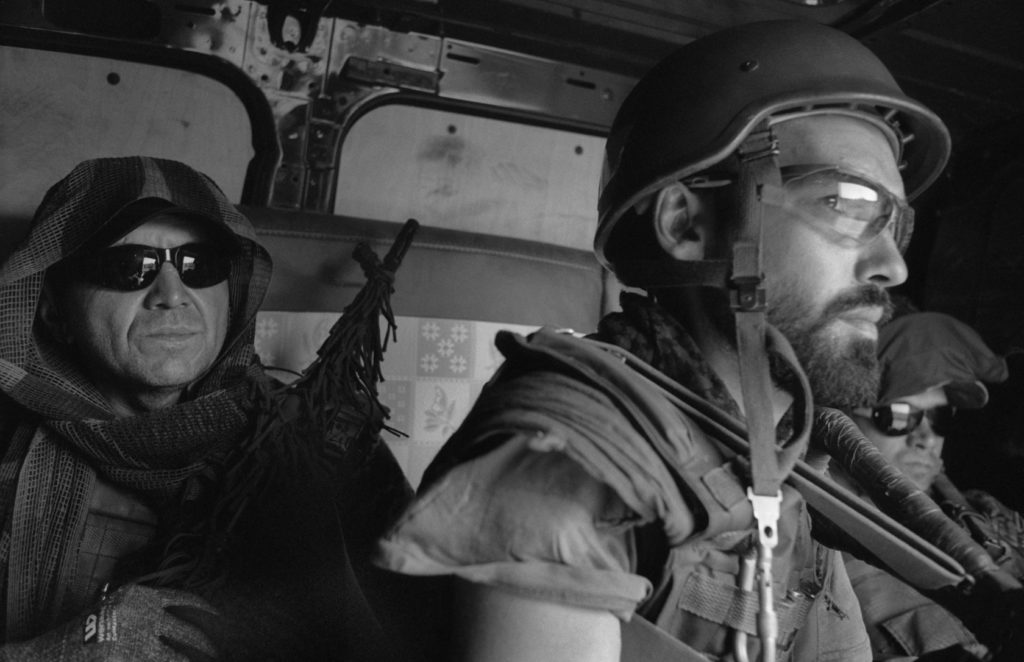
I was leaving Ilovaisk along the “green corridor”. On August 28, they began to form a column: they counted machinery [unimpaired], the number of machinery that had been burnt, the number of people. Early in the morning, we started to move towards Mnohopillia. When we reached the field, mortar shelling began, they started forcing us away. They were scared that we might consolidate.
We were kicked out, as they say, into an open field, where they were already starting shooting at the columns. But we were lucky: we reached Chervonosilske and consolidated there. We engaged in the battle there and captured Russians: paratroopers, tankers. We also managed to set fire to several units of their equipment.
In the evening, 3 pairs of our snipers came together to decide what to do next: either to leave or to stay. Everyone knew that if we were captured, snipers would not be among their favorites. I decided for myself that I would not leave the wounded. Everyone who was there made their own choice.
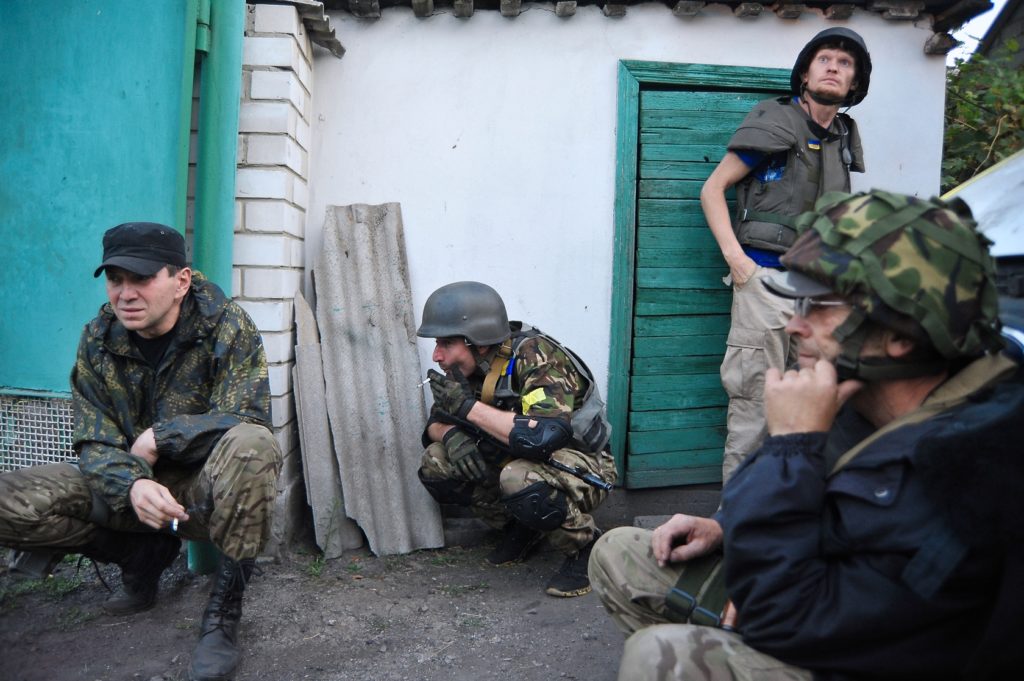
August 23, 2014. Photo: Markiian Lyseiko
In the afternoon of August 30, negotiations were already underway. They gave us 5 minutes or thereabouts to leave and were just leveling small villages to the ground. Only two small houses with wounded soldiers and civilians were left in one village. They broke weapons and threw them into campfires. Late in the afternoon we started to leave. We were met by Russian paratroopers. We spent another night in the field together with the members of the Armed Forces of Ukraine and other units. The next day we were handed over to Motorola’s men.
The attitude of the Russians and Motorola’s men towards us was different. Even though the Russians were invaders, they treated us as prisoners – they did not beat us, tried to feed us, but had nothing to eat themselves. Half of the Russians did not understand where they were. They believed that Donetsk was part of the Russian Federation, a kind of a regional center in the Rostov region. Then Motorola’s men came, aimed their assault rifles at us, flicked off safety catches, and made us jump to “Khto Ne Skache Toy Moskal” [Whoever does not jump is a Moskal]. It all looked like execution by firing squad.
Then we were loaded into cars and taken to Donetsk. There we were already met by real representatives of Novorossiya: there were interrogations, torture, beatings. However, there were Russians at the interrogations. They had no chevrons, did not ask unnecessary questions, they just listened and wrote something down – professionals. It was obvious that they had a different style.
There was once an interesting story in a basement. Two men came and asked, “Which ones of you were in a kikimora [camouflage suit], when did you receive it?” And we pretended to be fools, and someone said, “Kikimora? There was no such codename.” One of the two men said to the other, “Don’t you see, they are morons.” When they left, we were rolling on the floor laughing.
Фото: Лисичанск, на базе батальйона боевиков “Призрак”, июль 2014 года
автор: Александр Гляделов
In the captivity we pretended to be fools: we said that we were drivers, cooks, hospital attendants, but definitely not snipers or mortar gunners. They said that we had been summoned. I said that I was a radioman and gave correct answers to suggestive questions. I am not a young man any more, I said, “Look at me: I don’t see without glasses, how could I possibly be a sniper?”. Although they had a list of our specialties, we all explained that we enrolled this way in order to get weapons.
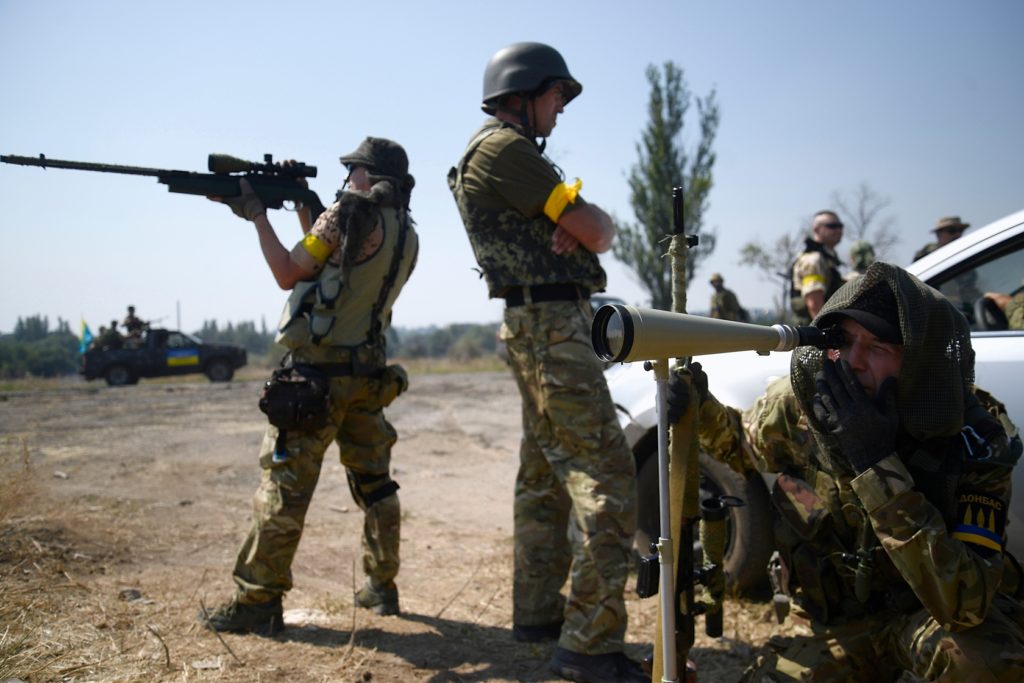
I was held captive for two months. A month and a half later, most of the prisoners, including me, were taken for rehabilitation to Ilovaisk. When we were brought in, local military men in the commandant’s office asked, “Did they feed you in Donetsk, or not?” Yes, they fed us: gave us some pearl barley and a piece of bread. The locals brought us food. Then we were assigned to different works. Even though the locals did not have a lot of food themselves, our relatives sent money to a bank account, and we went with the locals to Donetsk: there we bought food, socks, dishes.
For example, a local came to the commander and said, “My house was damaged during combat, I need 10 people to repair the roof.” At first, we thought that we would be treated as chastisers and fascists, but it turned out that people had a more pro-Ukrainian attitude. They gave us food and clothing – it was getting cold, and we were still in summer clothes. We got an opportunity to call home.
They are heroic people. They said, “What will I lose? This is my house; this is my land.” At first there was a certain tension, but then they saw that we were good sane people, and definitely not Banderites. Two thirds of our men had higher education.
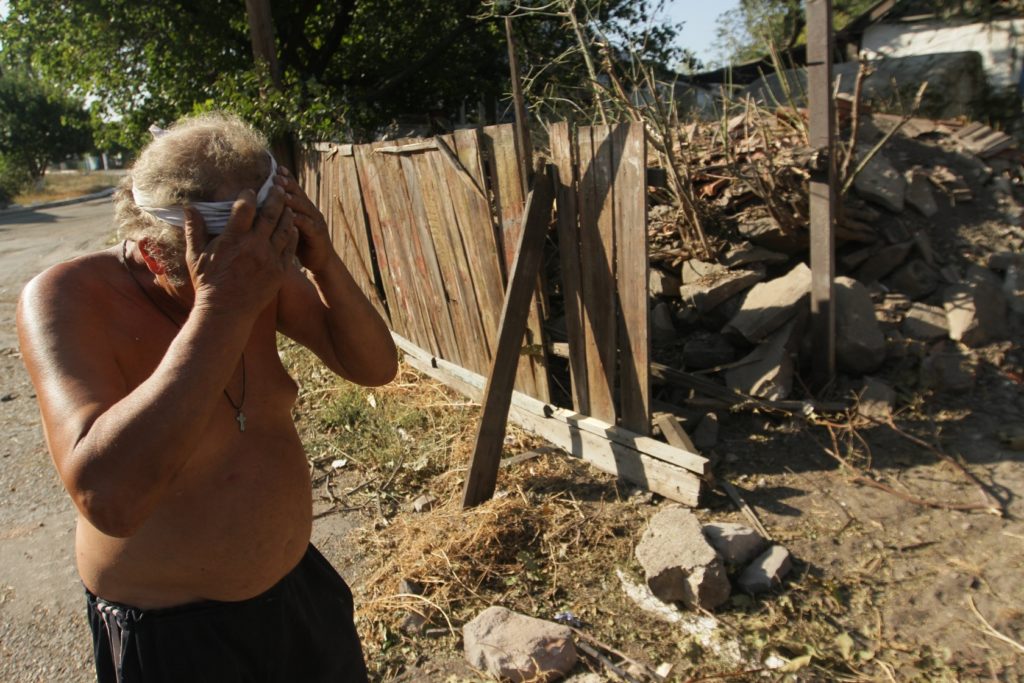
Photo: Anatoly Boyko
We were released from captivity mainly thanks to the efforts of our relatives. Separatists immediately warned us that they would not be organizing ransoms. Maybe they were afraid because we were from the Donbass. If I understand correctly, members of the Armed Forces of Ukraine could be exchanged for money, and we were kind of “in the public eye”, we were too famous.
My wife and daughter called the President, the Security Service of Ukraine, and Semen (Semen Semenchenko – editor’s note). There was no help anywhere. Semen only offered my wife money, but what did this have to do with money? Then my wife contacted the head of the Zaporizhia self-defense organization, an Afghan. One of his friends brought the captured separatists to the edge of Donetsk. We, on the other hand, were brought there by members of the Main Directorate of the General Staff of the Armed Forces of the Russian Federation. They even were not concealing who they were. They brought us, exchanged, and that was all.
Of course, they put more pressure on those who were from Donetsk and Luhansk. They could beat them up for “wrong” answers at interrogations. For example, if your answer to the question “How did you get captured?” was “I was fighting against Russian troops and was captured by Russian paratroopers.”
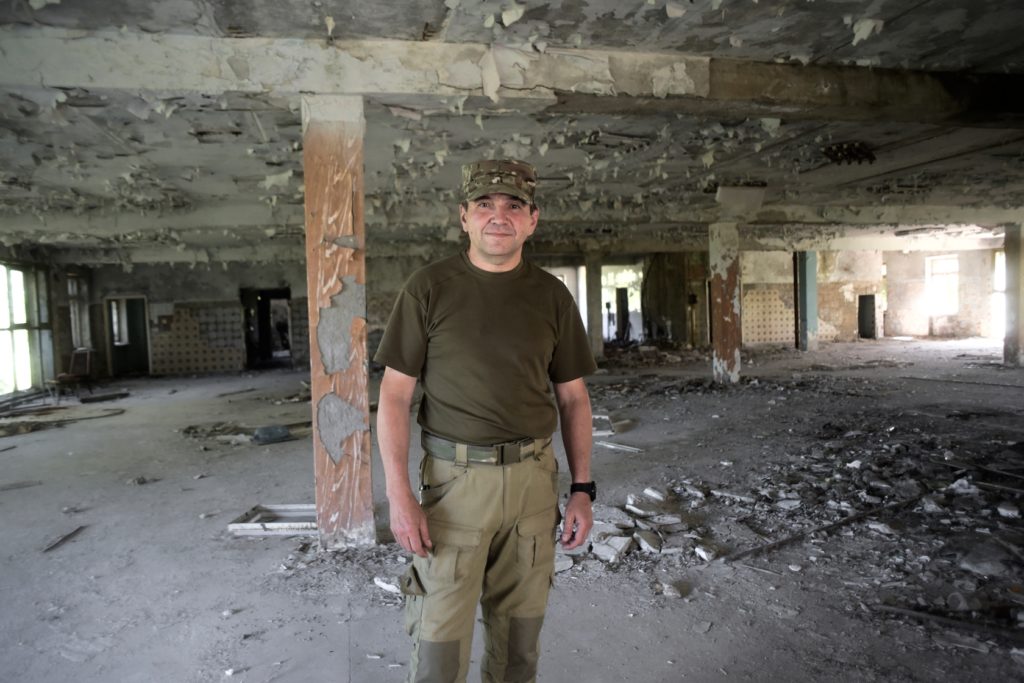
When there were no more reasons for beatings, they could “find” cigarettes “with weed” in our basement. Where could we get them there? Those were cop’s methods. They were looking for any reason. There was one guy there on guard, codename “Baton”, a gopnik. He said, “I only finished 8 classes in school, the street raised me.” He had the habit of training in the evening, beating someone. Or if there was someone’s birthday on that day, they took several people outside and beat them.
I do not regret going to the war, and I also do not regret not leaving the wounded.
In 2014, we thought that all of this would end quickly. We are all tired. In particular, family members are extremely tired of waiting for those on the front line. Not only are they on their own, without husbands, they also have to endure all of this and to constantly worry about what is happening there. Given what they (relatives – editor’s note) endured in 2014, especially the green corridor.
After I resigned from the “Donbass”, I stayed at home for several months. Then I went to serve in one of the special forces of the Ukrainian army. I continue to fight until this day.
